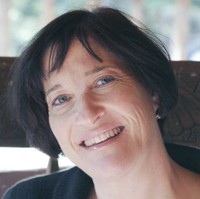“Fairness does not mean everyone gets the same. Fairness means everyone gets what they need.”
~ Rick Riordan
Fairness is a value construct that is inborn into all of us—even the smallest of children recognize and bear witness to experiences of injustice among their peers.
This very human urge towards making things fair is one of the fundamental ways that love acts as a currency in life.
All of our sporting events that occupy so much of our attention are a reflection of the drive we have towards fairness, whether in little leagues or professional sports, we are content that there are a set of rules that make the game fair for everyone; without them, it is not a game.
In fact, in some tight contests, a bad call that throws the fairness in the game is rehashed passionately for days after the event. In intimate relationships we rely on each other’s capacity for honesty and authenticity as the shared set of ground rules that make growing our vulnerability possible.
And yet, most of the world’s most urgent crises can be traced back to unfairness both in the distribution of natural resources and the capital that serves as the accepted currency to make things happen. Many of life’s most challenging moral dilemmas stem from the cognitive dissonance created by our inherent tendency towards fairness and the many realities that support life’s inherent unfairness.
This collective cognitive dissonance around fairness as a guiding principle in finding balance on earth is growing. The seeds of all of the Occupy movements were driven by this urge toward fairness. And the emerging movement towards impact investing is aspiring to answer this call.
As one of the selected entrepreneurs for the SOCAP conference this week in the Bay area, I was honored to be a part of such a powerful group of solution makers. Indeed, it was clear that infused with sufficient capital, this small group of courageous inventors could probably solve the majority of the issues threatening survival around the globe.
Yet, for all the buzz words on growing the good economy, like social return and triple bottom line- the investment community remains largely locked into fear-based models of investing, which requires financial returns and limited risk.
The truth is that even among the wealthiest; money is not experienced as a currency of freedom and love, but rather fear- of loss, of failure, of self.
Steve Wright of the Grameen Foundation was the singular voice of reason that I was privileged to hear. His talk about financial investing started with love. His courage to re-define the classic buzz words of social returns as effective long term solutions to real problems and call out the fallacy of wealth preservation as a means of creating the sustainably poor was bold and awakening. Love is the currency of healing and capital is the means to generate more love.
That is the real wealth, the consciousness that some things, actually most things that really matter don’t have a price.
Fairness is a measure of the heart. It comes when we trust that there is enough for everyone and when we really get that there is no other—no over there, but rather that we are all in this together.
The truth is that we live on a small planet and the environmental crises that are increasingly threatening our security have no borders.
Money must become a currency of love for our survival and we can all rely on our sense of fair play to judge what we really have to give.
From this perspective we will be able to measure our returns based on the vibrancy of the communities we create.
Like elephant enlightened society on Facebook.
Ed: Bryonie Wise











Read 0 comments and reply